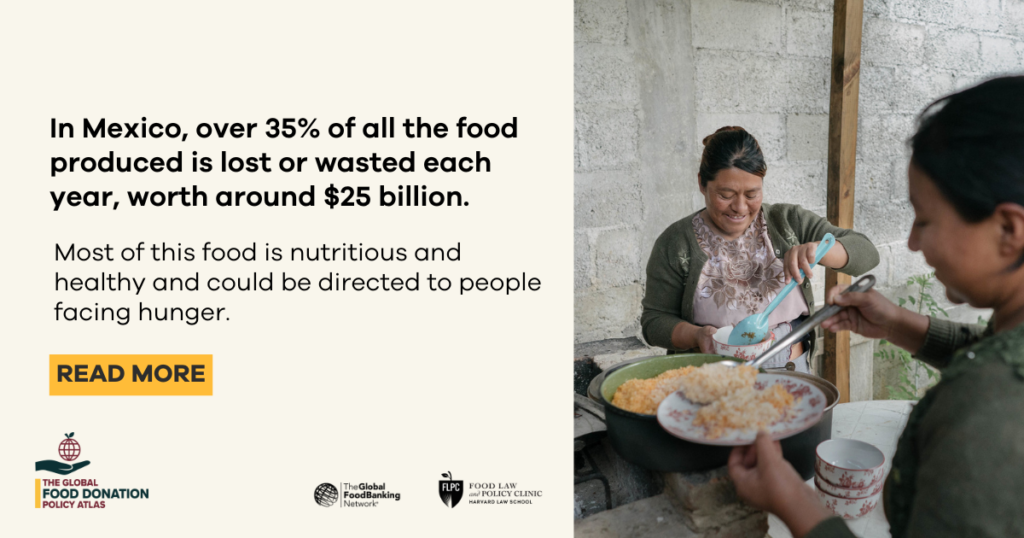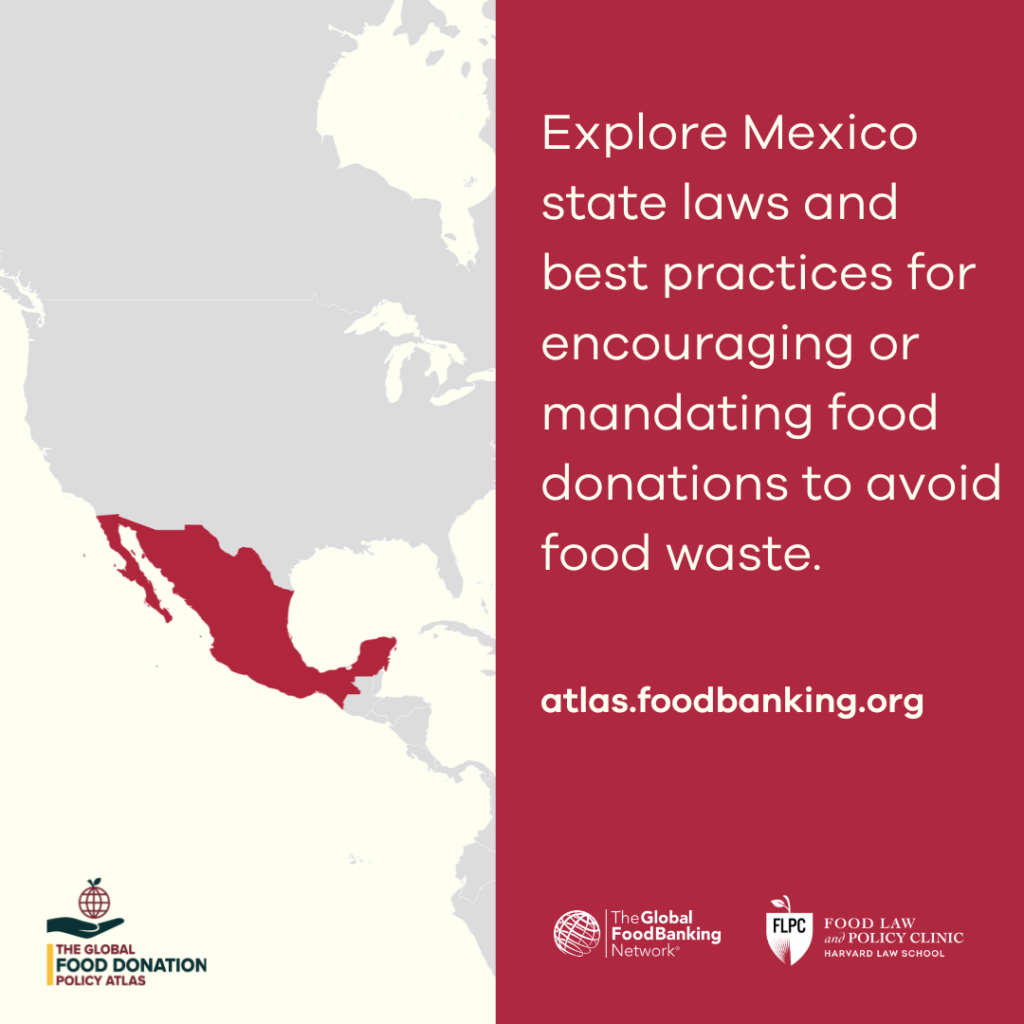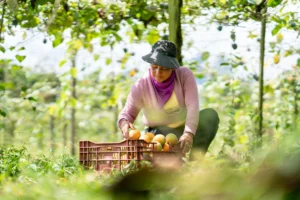The Harvard Law School Food Law and Policy Clinic & The Global FoodBanking Network highlight legal and policy solutions for Mexican states to take action on climate change and food security.
The Harvard Law School Food Law and Policy Clinic (FLPC) and The Global FoodBanking Network (GFN) released a new toolkit to equip advocates and officials in Mexico with state-based legal and policy strategies to curb food loss and waste through food recovery and donation. This comprehensive resource offers Mexican states systems-level solutions to help address challenges related to climate and sustainability, food security, fiscal responsibility, and opportunities to support local agricultural producers.
Over 35% of all the food produced in Mexico is lost or wasted each year, worth around $25 billion. Most of the wastage is nutritious and healthy and could be directed to people who are hungry. Instead, it’s trucked to landfills, where it rots and produces methane, a greenhouse gas. At the same time, about 28% of Mexico’s population was moderately or severely food insecure in 2023 and about 36% lived below the poverty line.

The toolkit comes at a moment when Mexican lawmakers are confronting food waste head-on for the first time. Mexico’s General Law on Adequate and Sustainable Food, enacted in April 2024, recognizes the connection between food loss and waste and the right to food, and it mandates that all possible measures should be used to avoid food waste. The law also directs states to promote policies and actions to reduce food loss and waste and ensure the right to food by aligning their laws with the new national mandate by April 13, 2025.
The new toolkit, along with the 2024 General Law, creates significant opportunities for states to implement effective food donation mandates, liability protections for donors, food safety, date labeling, tax incentives, government grants and programs, and enforcement measures.
“States across Mexico are already demonstrating leadership on this front with enacted laws that aim to reduce food loss and waste and address critical global issues like climate change and food insecurity,” said Emily Broad Leib, clinical professor of law at Harvard Law School and faculty director of FLPC. “Our toolkit, developed alongside Mexican partners, aims to build on this foundational work by providing state policymakers and advocates with a blueprint for implementing and expanding legal frameworks. We hope Mexican leaders will use this resource to overcome barriers to food donation, nourish their communities, reduce food waste, and limit environmental damage.

“The new law in Mexico makes the important connection between food loss and waste and food insecurity and lays a strong foundation for policies that can simultaneously feed more people and protect our planet,” said Lisa Moon, president and CEO of the Global FoodBanking Network. “This new toolkit for Mexico is drawn from best practices around the world and can help lawmakers in Mexican states take the small steps that can have a big impact on hunger and climate change.”
The Toolkit was developed with support from the Walmart Foundation as part of The Global Food Donation Policy Atlas, which maps laws and policies affecting food donation around the world. Atlas project research is available for 25 countries and the European Union: Argentina, Australia, Brazil, Canada, Chile, China, Colombia, Costa Rica, the Dominican Republic, Ecuador, Ghana, Guatemala, India, Indonesia, Israel, Kenya, Mexico, Nigeria, Paraguay, Peru, Singapore, South Africa, the United Kingdom, the United States, and Vietnam. An interactive map, Legal Guides, Policy Recommendations, and Executive Summaries for each country are available at atlas.foodbanking.org.
###
About the Harvard Food Law and Policy Clinic
The Harvard Law School Food Law and Policy Clinic (FLPC) serves partner organizations and communities by providing guidance on cutting-edge food system issues, while engaging law students in the practice of food law and policy. FLPC’s work focuses on increasing access to healthy foods, supporting sustainable production and regional food systems, promoting community-led food system change, and reducing waste of healthy, wholesome food. FLPC is committed to advancing a cross-sector, multi-disciplinary and inclusive approach to its work, building partnerships with academic institutions, government agencies, private sector actors, and civil society with expertise in public health, the environment, and the economy. For more information, visit chlpi.org/food-law-and-policy.
About the Global Foodbanking Network
The Global FoodBanking Network supports community-led solutions to alleviate hunger in nearly 50 countries. While millions struggle to access enough safe and nutritious food, nearly a third of all food produced is lost or wasted. We’re changing that. We believe food banks directed by local leaders are key to achieving Zero Hunger and building resilient food systems. For more information, visit foodbanking.org.


Food Law & Policy, Commentary
Policy to Reduce Methane Emissions and Feed More People
April 3, 2025